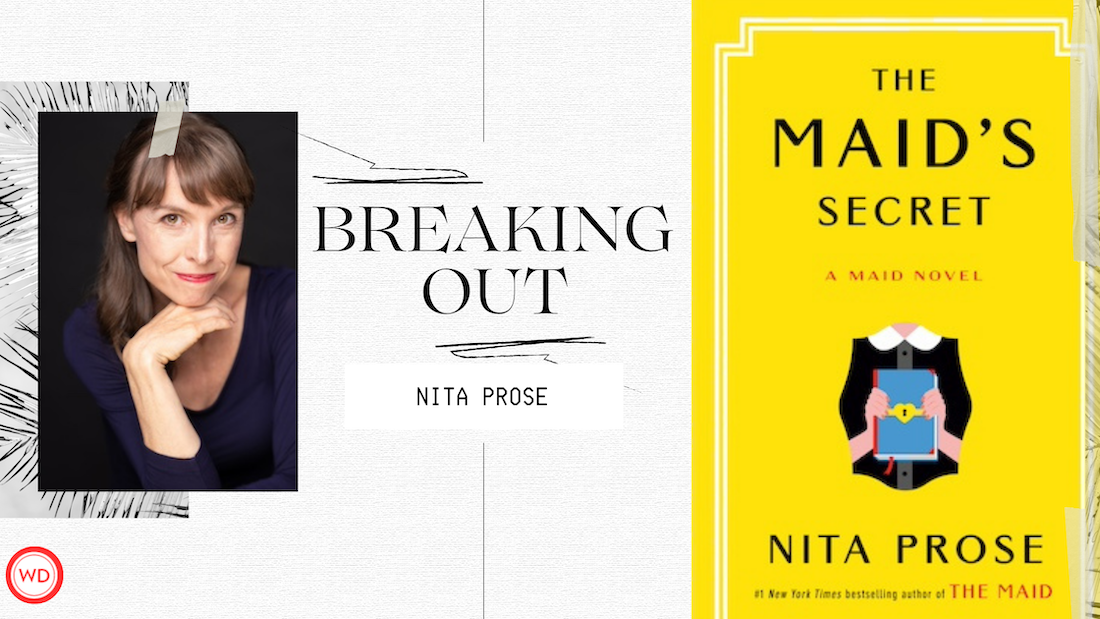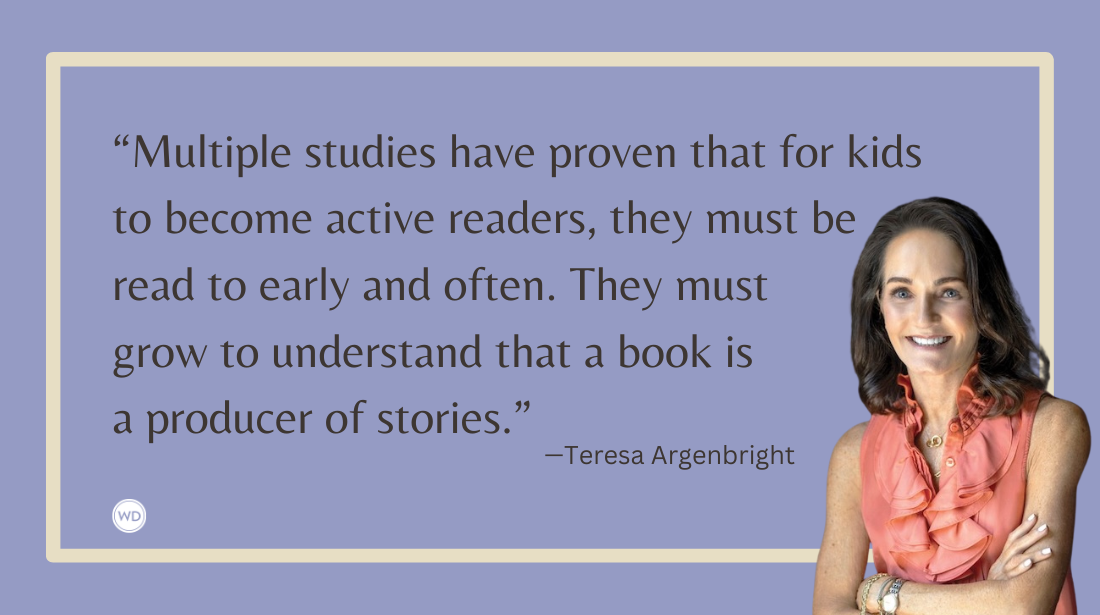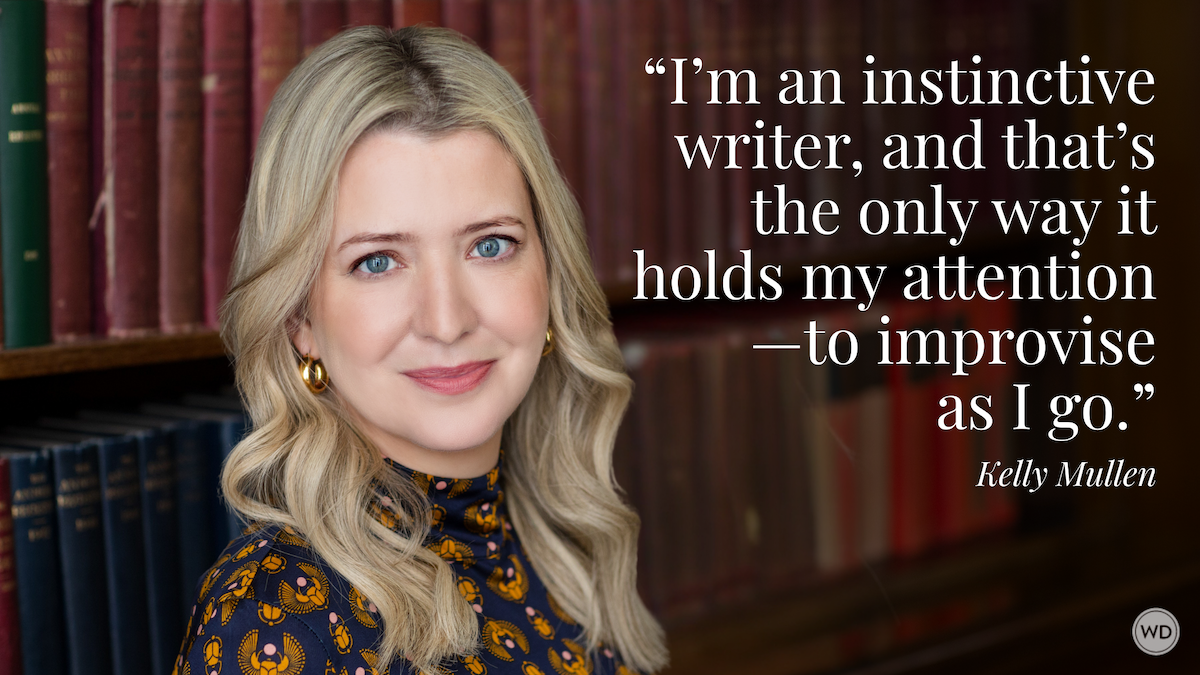Olesya Salnikova Gilmore: On Introducing Russian History to Fantasy Readers
Author Olesya Salnikova Gilmore discusses the changes her manuscript underwent throughout the writing process of her debut historical fantasy novel, The Witch and the Tsar.
Olesya Salnikova Gilmore was born in Moscow, Russia, raised in the U.S., and graduated from Pepperdine University with a BA in English/political science, and from Northwestern School of Law with a JD. She practiced litigation at a large law firm for several years before pursuing her dream of becoming an author.
She is most happy writing historical fiction and fantasy inspired by Eastern European folklore. She lives in a wooded, lakeside suburb of Chicago with her husband and daughter. The Witch and the Tsar is her debut novel. Follow her on Twitter, Facebook, and Instagram.
In this post, Olesya discusses the changes her manuscript underwent throughout the writing process of her debut historical fantasy novel, The Witch and the Tsar, how research played a major role in the construction of the story, and more!
Name: Olesya Salnikova Gilmore
Literary agent: Jennifer Weltz, Jean V. Naggar Literary Agency
Book title: The Witch and the Tsar
Publisher: Ace/Berkley/Penguin Random House
Release date: September 20, 2022
Genre/category: Historical Fantasy
Elevator pitch for the book: The Witch and the Tsar is the retelling of the maligned and immortal witch of legend known as Baba Yaga as she risks all to save her country and her people from Tsar Ivan the Terrible in 16th-century Russia.
IndieBound | Bookshop | Amazon
[WD uses affiliate links.]
What prompted you to write this book?
When I started The Witch and the Tsar, I had written two books that had gone nowhere. Totally uninspired, almost desperate, I turned to the Russian folktales I had grown up with as a child. Baba Yaga loomed large in these stories—her elusive and mercurial character, her enchanting chicken-legged hut, her terrific mortar and pestle mode of transport, her sharp tongue and fearsome appearance, unsurprising for a woman of knowledge living alone in the wood.
As it turns out, some scholars believe the Baba Yaga we know—the old, ugly hag from the fairy tales—is based on, or is a descendent of, a fertility and earth goddess worshiped by ancient pagan Slavs. I was instantly fascinated by how a goddess could become a witch and just knew I had to write a book not about the infamous hag, but about the little-known woman named Yaga.
How long did it take to go from idea to publication? And did the idea change during the process?
I started research for the book in fall 2018 and wrote part of the story that winter before losing steam and going on a research trip to Moscow, Russia, in February 2019. I was so inspired after my trip that I finished the book that spring in a frenzied burst. Little did I know it was only the beginning. I ended up revising the book for an entire year, including a dizzying number of rounds of critique partner and beta reader feedback, as well as preparing and finalizing my query materials (in some ways, more difficult than writing the book itself).
I signed with my agent in June 2020, after which we spent six months revising the book once more before going on submission. I received my offer from Ace/Penguin Random House in August 2021, then revised the book yet again (and again) before it became what it is today!
The idea for the book changed significantly before I started to write—it went from a story about Yaga and her two sisters wreaking havoc in modern-day Washington D.C. to Yaga fighting Ivan the Terrible in medieval Russia! After I started to write, the story and its structure remained largely the same. That’s how I knew it was the one, the story about Baba Yaga that I was meant to write!
Were there any surprises or learning moments in the publishing process for this title?
I did not fully appreciate the depth and breadth of the revision process that follows the signing of that shiny new contract, or the way my editor would draw out the story I truly wanted to tell—by developing my writing to a level I never thought possible. I did not expect to learn as much as I have from my agent and editor about the craft of writing, the skill of storytelling, and the art of pitching.
Finally, it was a dream come true to learn about how the process of publishing works, which I knew little of before publication.
Were there any surprises in the writing process for this book?
I was shocked when my Yaga started to have her own mind, grabbing hold of the story with her own two hands so fiercely and yet so seamlessly that I hardly noticed when she took over. She did not take to the love interest I had picked out for her, so she spurned him and left him in the dust.
She wasn’t as opposed as I initially thought she would be to being a witch, instead taking control of her power and really owning it. And she didn’t appreciate men dictating her at every turn, so she dictated them. She came alive for me brightly and fully and entirely unapologetically.
What do you hope readers will get out of your book?
My goal is to challenge readers’ notions of what makes a witch—and a woman—within the confines of our patriarchal society, and how we can peel away those notions to discover the hidden truth or possibility of truth by reframing old beliefs and old stories. I would also like to share a very important and largely unexplored piece of Russian history, an example of a people standing up to tyranny and oppression from within their own country because it is the right thing to do.
If you could share one piece of advice with other writers, what would it be?
Be curious! Learn about everything, soak up as many resources as possible on the craft of writing and publishing, read widely in your genre and outside your genre, make writing friends and get to know them and their writing and their thoughts on your own work.
My first exposure to the industry was actually at a Writer’s Digest Conference—first in Chicago, then in New York City. Both were wonderful experiences, allowing me to learn about the industry, other writers, even meeting agents and publishers. It was when I immersed myself fully in this world of writing and publishing did I see my skills improve, which then slowly, eventually, led to the incredible ride that followed!
Robert Lee Brewer is Senior Editor of Writer's Digest, which includes managing the content on WritersDigest.com and programming virtual conferences. He's the author of 40 Plot Twist Prompts for Writers: Writing Ideas for Bending Stories in New Directions, The Complete Guide of Poetic Forms: 100+ Poetic Form Definitions and Examples for Poets, Poem-a-Day: 365 Poetry Writing Prompts for a Year of Poeming, and more. Also, he's the editor of Writer's Market, Poet's Market, and Guide to Literary Agents. Follow him on Twitter @robertleebrewer.








